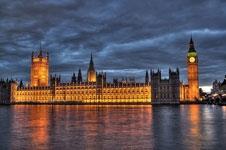If passed, legislation will help councils boost jobs, infrastructure and local development, says communities department
A bill containing powers crucial to the funding of the £16bn Crossrail scheme was published by the communities department yesterday.
If passed by MPs the law will allow councils to charge a supplement to business rates to help pay for specific pieces of major infrastructure. Almost a quarter of Crossrail's funding package is supposed to come from these additional business rates charges.
The Business Rates Supplements bill is designed to allow English councils and the Greater London Authority to raise and retain funds for economic development projects in their area. Business rate supplements are supposed to contribute £3.5bn to the £15.9bn Crossrail project, for which agreements with other funders were signed yesterday.
The communities department said the bill could provide a real boost to jobs, infrastructure and local development. Councils using it will have a duty to consult businesses in their area before imposing the tariff. Local government minister John Healey said: “The bill will give councils the power to work with local businesses on economic development projects that will improve their local area, boost job opportunities and further increase confidence in the local economy.”
However, the bill has already been criticised by organisation's worried it will hurt businesses that are already suffering as a result of the credit crunch. Royal Institution of Chartered Surveyors spokesperson Nadia Nath-Varma said: “RICS is concerned about the practical implementation and consequences of yet another tax on business, particularly at a time when we have just entered a recession. Business occupiers paying the supplement must benefit from the consequent economic development, with owners of property, who will also ultimately benefit, contributing financially in some way.”
Crossrail is to be funded through a complex web of public and private bodies. Yesterday the GLA announced that the City of London Corporation has agreed to put up to £350m toward the scheme, following on from the decision of the British Airports Authority to contribute £230m. However, after the Department for Transport, which is to pay £5.1bn towards the scheme, the business rate supplement is the single largest proposed contributor.
The east-west London rail link will provide a boost of at least £20bn to the UK economy and generate an extra 30,000 jobs, with construction starting in 2010. The GLA says it will also deliver a 10% increase to the capital's rail capacity on opening, earmarked for 2017.




























No comments yet